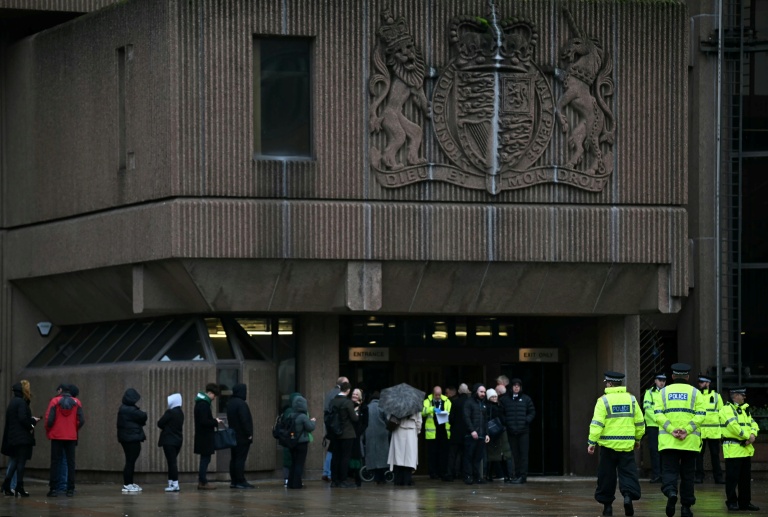“The Kurds did not acquire drones from Iran – this is all clear Turkish propaganda,” a Kurdish military official stated to The Jerusalem Post in a video call on Wednesday.
These remarks came following an article published by Turkish outlet Yeni Safak – and echoed on the Post – which blamed Kurdish forces for acquiring drone capabilities from the Islamic Republic regime.
“We did not acquire any drone capabilities from the Iranians,” the official told the post decisively. “Our drone capabilities are very basic and they are all made in-house, in initiatives led by our fighters.”
The official argued that Yeni Safak, a popular conservative Islamist newspaper in Turkey, is loyal to Turkish President Erdogan and his party, AKP. “This outlet has clear interests in distorting our image and tying us to extremist, pariah regimes. They failed to make progress against our fighters on the ground, and so they are trying to distribute propaganda and lies about us.”
Regarding the current situation in the Kurdish-administered areas in Syria, the official commented that their forces control between 30-35% of the area of Syria, claiming that it is currently the safest region in the country. “Our very existence as a self-ruling area is a hurdle for Erdogan’s expansionist agenda, which dreams of redrawing the Middle East in accordance with the map of the Ottoman Empire.
The official continued: “We are being attacked even now, as we speak, despite being Syrians ourselves. Despite this, so far, they have failed to expand east of the Euphrates, so they understandably turned to media warfare.”
The ripple effects of the Yeni Safak publication were so massive that the Kurdish-led Syrian Democratic Forces (SDF) also issued a post denouncing and rejecting these accusations on their social media accounts, similarly reading: “Drones are the product of pure self experiences of the people of North and East Syria. The Turkish media affiliated with the Turkish government’s policy of genocide against the peoples of the region is grappling with a crisis of fabricating false news… This news is entirely false and blatantly fabricated by the Turkish media. Their aim is to cause harm to our forces and our people and create a hostile atmosphere toward the cause of the people in North and East Syria.”
Turkiye and the Kurds: a historical enmity
A historic enmity exists between the Turkish state and the Kurdish minority over, both on the backdrop of ethnic tensions and over the issue of Kurdish independence. The ethnic minority constitutes an estimated 15-20% of the population in Turkiye, while millions of their kin reside in modern day Syria, Iran and Iraq, where the local Kurdish minority enjoys an autonomously run region, aided by western powers.
Turkish forces have been launching attacks against Kurdish population centers in Syria for years, claiming that they are “run by terrorists” who provide support to a local Kurdish organization in Turkey, the PKK, which Turkiye deems a terrorist group. In this context, at least since 2016, the Turkish army has been occupying large swaths of land in northern Syria, some of which are traditionally Kurdish areas.
Now, with the consolidation of the new regime in Damascus, the Kurds of Syria fear further repercussions from the Turkish-backed forces. “Turkiye is just like Iran. They are both run by extremist religious regimes,” the official added. “Once the Iranian influence in Syria collapsed with the Assad regime, Turkiye was free to take its place. They hate the Kurds, and are unable or unwilling to stop their incitement against us.”
In this context, the official expressed his concern regarding the new administration’s ties to Turkiye. “Kurds are an important part of Turkish society. There are about 4 million Kurds in Istanbul alone, and many more across many Turkish cities. But you must remember that many of them were ethnically cleansed by the Turkish army from their old historical towns in eastern Turkey,” he mentioned, reiterating that “In Syria, too, our autonomy is an obstacle to their expansion.”
When asked whether he is optimistic about the new regime and its ties with the Kurdish minority in the country, the official commented with a bitter smile: “We appreciate the international community’s attempts to secure a steady and democratic future for Syria and all its citizens, and we certainly wish that it would lead to a state for all its citizens with a constitution and equal rights for all. But right now we are in a very dangerous situation.”
The official continued: “The current government in Damascus does not extend its control to the entirety of Syria, nor did it manage to take control over all of the former regime’s weapons. Many extremist groups are being established, many crimes have been carried out against minorities and women, we see more and more Islamist involvement in universities and such.” For the official, this chaotic situation may be only a hint at what is coming, not ruling out a regrouping of ISIS and its violent campaigns against minorities.
On the issue of Israel, despite choosing to remain anonymous “due to the circumstances,” the official stated “It is an honor to appear in your media. The Jewish people are an ancient nation in our region. They had an important role since the times of Abraham; they had prophets and later on philosophers, historicists, scientists. The Jewish people can make great things in our region and play important roles in sustaining the peace and stability in our region,” he commented.
“Unfortunately, the current political prospects make it difficult for us to stand together and cooperate openly,” he continued. “As for the State of Israel, it is a strong country with many capabilities – political, economic, military – and it can help bring an end to terror and establish sustainable peace in the region, and we wish Israel and the Jewish people will play this important role.”







